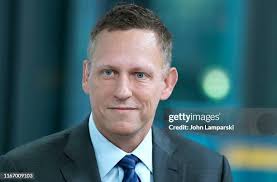
Introduction
Peter Thiel, a prominent figure in the technology and investment sectors, has continued to shape the landscape of startups and innovation. As co-founder of PayPal and an early investor in Facebook, Thiel’s ventures are not only notable due to their scale but also because of his unique insights into technology and finance. His ongoing influence makes the examination of his thoughts and actions crucial, particularly as the world grapples with rapid technological advancements.
Peter Thiel’s Career Highlights
Born in Frankfurt, Germany, in 1967, Thiel immigrated to the U.S. with his family at a young age. He graduated from Stanford University with a Bachelor’s in Philosophy and later earned a J.D. from Stanford Law School. Thiel’s career took off when he co-founded PayPal in 1998, which later sold to eBay for $1.5 billion in stock in 2002. This exit provided him with the capital to invest in various high-tech companies, including Facebook, where he invested $500,000 for a 10.2% stake in 2004.
Thiel’s Investment Philosophy
Thiel’s approach to investment is uniquely contrarian. He often promotes the idea of seeking “monopolistic” opportunities—companies that can dominate their markets without significant competition. This philosophy has driven his investments through his venture capital firm, Founders Fund, and has shaped the way many entrepreneurs think about scaling their businesses. His book, Zero to One, urges startups to create new things and avoid competition to achieve lasting success.
Recent Activities and Influence
In recent months, Thiel’s influence has been particularly visible in discussions about the impact of artificial intelligence and technology regulation. He has been a vocal critic of over-regulation in Silicon Valley, arguing that it stifles innovation. His commitment to supporting breakthrough technologies is underscored by his backing of initiatives aimed at the AI industry. Furthermore, as the political season heats up in the U.S., Thiel’s connections and financial support for certain candidates have sparked conversations about the relationship between tech influence and governance.
Conclusion
Peter Thiel’s journey and ideologies highlight the intersection of technology, business, and societal impact. His contrarian views have not only shaped his successful careers but also influenced countless entrepreneurs and investors worldwide. As technological advancements increase, Thiel’s insights will likely continue to provoke thought and debate, making it essential for those interested in the future of technology and investment to stay informed of his contributions. His legacy serves as a reminder of the power of innovative thinking in shaping future industries.






